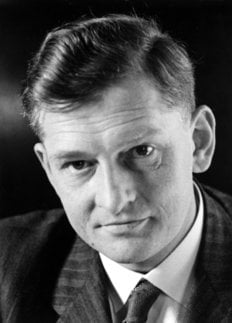Richard Kuhn
Biographical

Richard Kuhn was born in Vienna on December 3, 1900. His father, Richard Clemens Kuhn, was an engineer and “Hofrat”; his mother, Angelika Rodler, was a teacher in elementary schools. He was educated at the “Gymnasium” (grammar school). He studied chemistry at Vienna University and later at Munich under R. Willstätter. He obtained his degree (D.Ph.) in 1922 following his thesis Über Spezifität der Enzyme (On the specificity of enzymes).
In 1925 Munich University invited him to lecture on chemistry. Kuhn accepted an invitation by the Eidgenössische Technische Hochschule in Zurich, where he held the post of Professor for General and Analytical Chemistry from 1926 until 1929. He then became Principal of the Institute for Chemistry at the newly founded Kaiser-Wilhelm-Institut (since 1950, Max Planck Institut) for Medical Research in Heidelberg; in 1937 he also took over the administration of this Institute, in succession to L. von Krehl. Besides these duties he also filled the post of Professor of Biochemistry at the University of Heidelberg. For one year he was at the University of Pennsylvania, Philadelphia, as a Visiting Research Professor for Physiological Chemistry.
Kuhn investigated theoretical problems of organic chemistry (stereochemistry of aliphatic and aromatic compounds; syntheses of polyenes and cumulenes; constitution and colour; the acidity of hydrocarbons), as well as extensive fields in biochemistry (carotenoids; flavins; vitamins and enzymes).
For a period of twenty years Kuhn investigated compounds containing double bonds which proved to be of great interest in connection with the study of the chemical nature of the carotenoids. He discovered eight new types of these and was able to analyse their constitution. He also carried out important work on vitamin B2 and the antidermatitis vitamin B6. For his work in this important field Kuhn was awarded the Nobel Prize for Chemistry in 1938.
Kuhn received numerous other honours and awards in recognition of his work; he was awarded honorary degrees of the Technische Hochschule in Munich (1960), the University of Vienna (1960), the University of St. Maria, Brazil (1961). An impressive number of medals and prizes have been presented to him, as well as orders and the highest possible honours, in many countries. Kuhn is also a member of many scientific academies, societies and organizations in all parts of the world. He is the President of the Society of German Chemists, Vice-President of the Max Planck Society and Editor of Liebigs Annalen der Chemie. He belongs to the Board of the “Badische Anilin- und Soda-Fabrik”.
It may be mentioned that for a period of eight years (1910-1918) Richard Kuhn was a schoolmate of Wolfgang Pauli who was awarded the Nobel Prize in Physics for 1945.
Richard Kuhn married Daisy Hartmann in 1928 and has two sons and four daughters.
This autobiography/biography was written at the time of the award and first published in the book series Les Prix Nobel. It was later edited and republished in Nobel Lectures. To cite this document, always state the source as shown above.
Richard Kuhn died on 31 July 1967.
Nobel Prizes and laureates
Six prizes were awarded for achievements that have conferred the greatest benefit to humankind. The 14 laureates' work and discoveries range from quantum tunnelling to promoting democratic rights.
See them all presented here.
